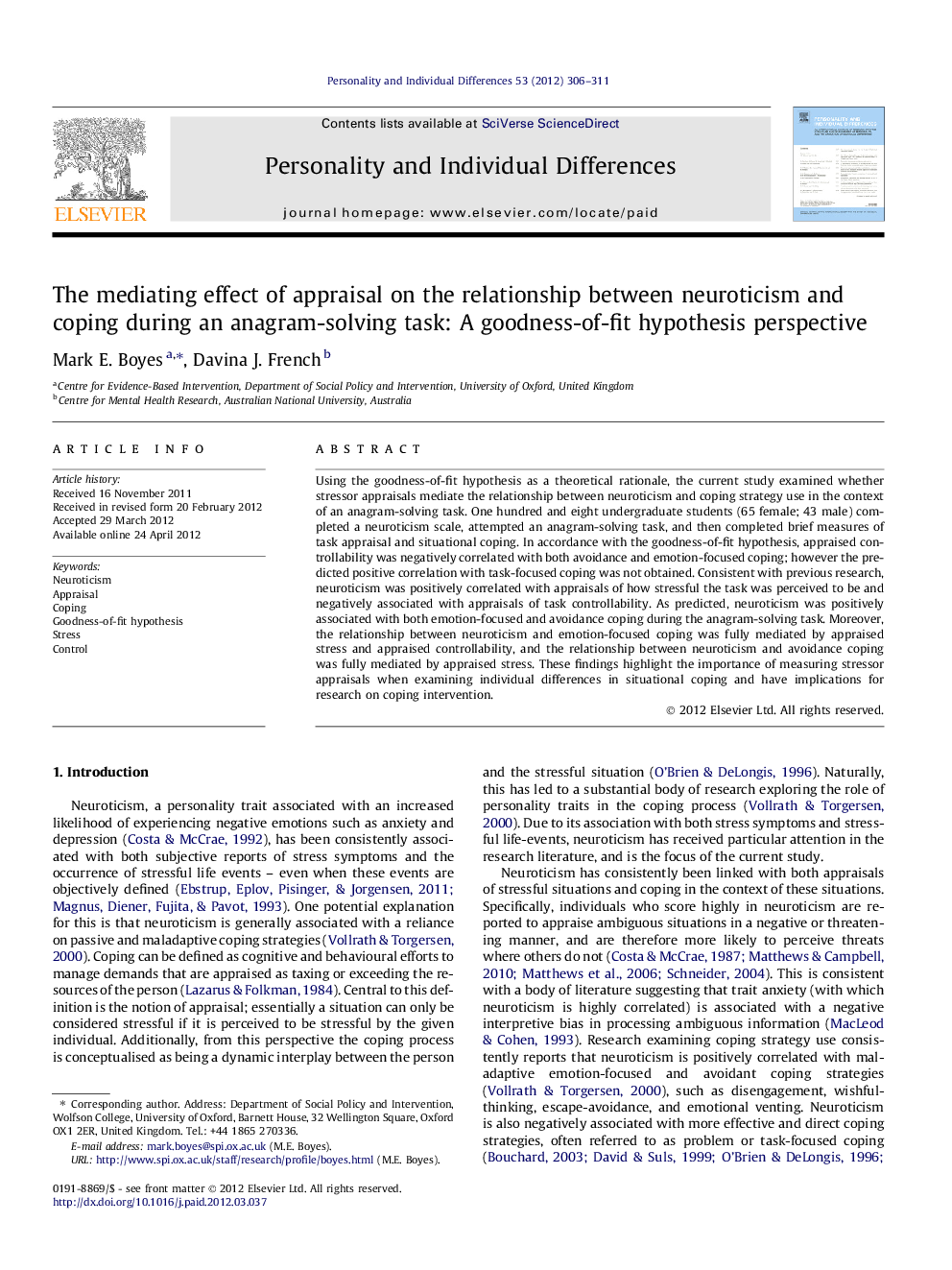| Article ID | Journal | Published Year | Pages | File Type |
|---|---|---|---|---|
| 891019 | Personality and Individual Differences | 2012 | 6 Pages |
Using the goodness-of-fit hypothesis as a theoretical rationale, the current study examined whether stressor appraisals mediate the relationship between neuroticism and coping strategy use in the context of an anagram-solving task. One hundred and eight undergraduate students (65 female; 43 male) completed a neuroticism scale, attempted an anagram-solving task, and then completed brief measures of task appraisal and situational coping. In accordance with the goodness-of-fit hypothesis, appraised controllability was negatively correlated with both avoidance and emotion-focused coping; however the predicted positive correlation with task-focused coping was not obtained. Consistent with previous research, neuroticism was positively correlated with appraisals of how stressful the task was perceived to be and negatively associated with appraisals of task controllability. As predicted, neuroticism was positively associated with both emotion-focused and avoidance coping during the anagram-solving task. Moreover, the relationship between neuroticism and emotion-focused coping was fully mediated by appraised stress and appraised controllability, and the relationship between neuroticism and avoidance coping was fully mediated by appraised stress. These findings highlight the importance of measuring stressor appraisals when examining individual differences in situational coping and have implications for research on coping intervention.
► Control and stress appraisals are associated with situational coping. ► Relationships between neuroticism and coping are mediated by stressor appraisal. ► It is important to measure appraisal when studying individual differences in coping. ► Intervention efforts should target stressor appraisal as well as coping behaviour.
